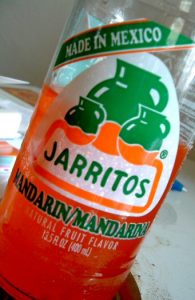So far, only Mexico, France, the City of Berkeley and the Navajo Nation have succeeded in passing a “sin tax” on soda or junk food, despite many attempts among various governments over the years. So there has been virtually no way to know if these taxes would actually to cut soda consumption – which nutritionists say is a critical factor behind high obesity rates and all its attendant ills.
In January 2014 in Mexico, the price of sodas and other sugary drinks went up by about 10 percent due to the new tax. (It’s generated $1.3 billion in revenue since then, which the Mexican government is using for health promotion campaigns such as adding more fresh water stations in schools.)
Now a new study, from the Mexican National Institute of Public Health and the Carolina Population Center at the University of North Carolina, suggests that the tax is dampening enthusiasm for sugary drinks.
According to the study, during the first year of the tax, sugary beverage purchases dropped nearly 12 percent, compared with previous years. And, in news that uplifted health advocates, people drank more water as well. The drop was even steeper among poorer Mexicans, who bought 17 percent fewer sugary beverages in 2014.
To read the full story on NPR’s food blog, “The Salt”, visit www.npr.org/sections/thesalt/2015/06/19/415741354/mexicos-sugary-drink-tax-makes-a-dent-in-consumption-study-claims

